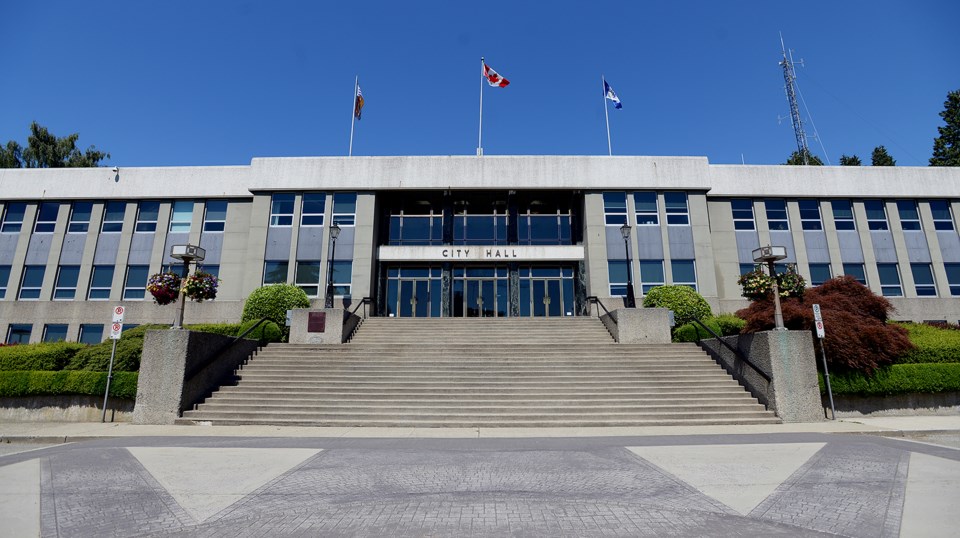New Westminster is attempting to increase the supply of new housing units to meet the needs of low- and moderate-income residents.
On Dec. 9, city council endorsed an inclusionary housing policy, which requires new strata residential and mixed-use residential development applications seeking rezoning to include below- or non-market rental housing units.
“The inclusionary housing policy aims to increase the supply of new units to meet New Westminster’s rental housing needs for very low-income households (under $30,000 per year) and low- to moderate-income households ($30,000 to $75,000 per year),” said a report to council. “These new inclusionary units are intended to supplement the existing stock of affordable market and non-market rental units.”
Mayor Jonathan Cote said he’s looking forward to seeing the policy incorporated into new development applications.
“We have all recognized affordable housing as one of the biggest challenges and priorities we want to address. I think this policy work is a big component of that piece of the puzzle,” he said. “I also think once we get it in place there is going to be opportunities to evaluate. Once you have it in place, it becomes a solid part of our development process, and it’s just part of the way of doing business in the City of New Westminster.”
The policy includes three options for applicants to choose from, ranging from the delivery of 5% to 20% of units as non-market rental. The policy also includes a number of other provisions, including how much rent can be charged, unit size and unit mix, and incentives that may be available.
The policy requires the non-market units to be owned and/or managed by either a non-profit housing provider or BC Housing to ensure the units reach the intended tenants based on income.
“I believe the inclusionary housing policy is a big step forward in addressing some of the city’s growing affordable housing needs,” Cote said in a press release. “The policy helps ensure that our affordable rental housing stock continues to grow and also, that it goes to those who need it most.”
Claudia Freire, housing and social planner, said about 350 people participated in various consultation opportunities, including a survey that had input from 258 people. Stakeholder workshops were also held with rental housing advocates, non-profit housing providers, the Urban Development Institute, rental building owners and Landlord BC.
Emilie Adin, the city’s director of development services, said the policy applies to strata residential and mixed-use residential development applications citywide, with a number of exemptions. These exemptions include projects developed under the city’s secure market rental policy and projects with fewer than 10 units.
Depending on the option, a number of incentives are proposed, such as additional density, potential waivers to city development cost charges, Greater Vancouver Sewerage and Drainage District and TransLink development cost charges, and reducing parking requirements.
Coun. Patrick Johnstone said he supports the policy, but has some discomfort about the idea of waiving development cost charges.
“I really do value DCCs and I think it’s a really important part of how we fund a lot of our challenging infrastructure problems in the city and how we are going to deal with the growth of our infrastructure,” he said. “That is the only part of this incentive packages that causes me a little bit of stress.”
According to a staff report, support for the inclusionary housing policy was “mixed” at a March 2019 workshop attended by rental building owners, property managers and Landlord BC. Some felt that more incentives would help make projects developed under this policy more viable.
Representatives from the development industry provided the city with some options they felt would help the developers embrace the policy.



